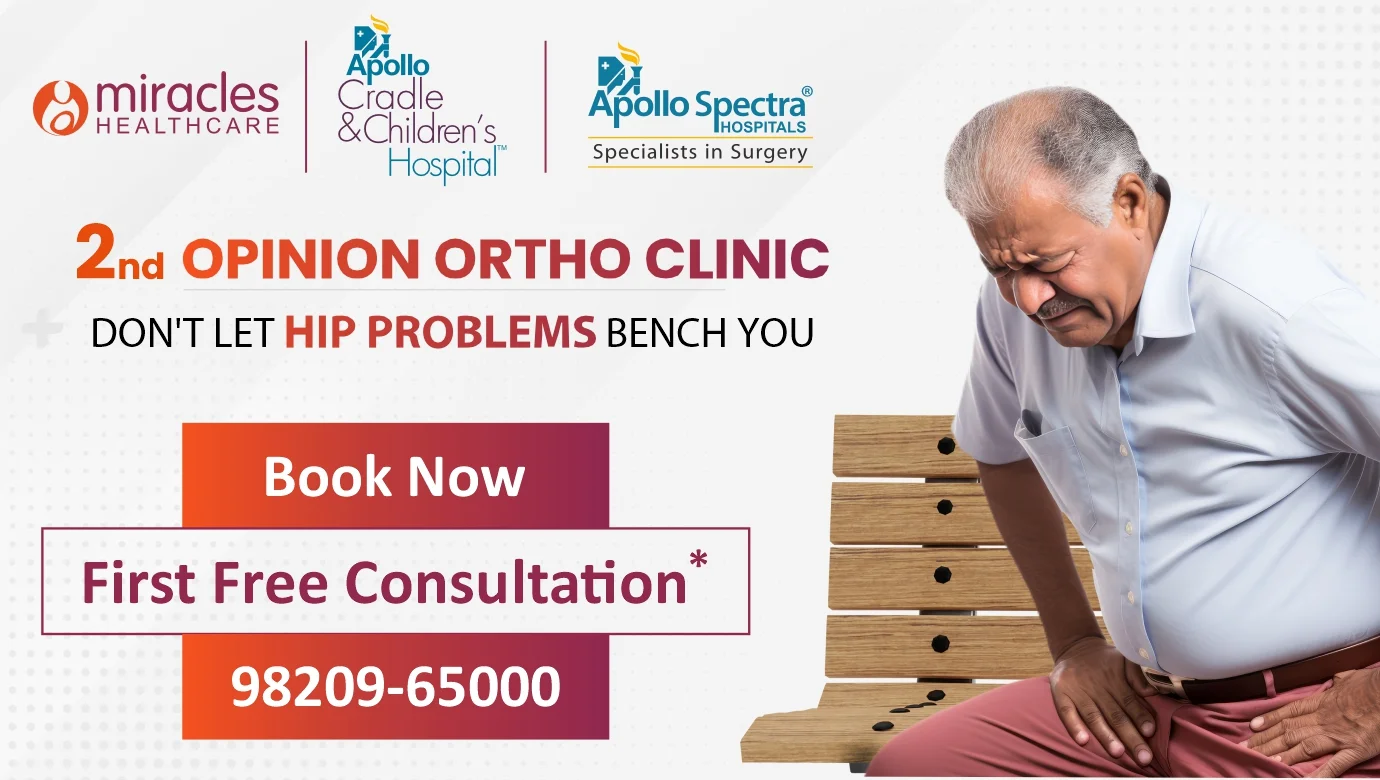Orthopedic Conditions We Treat
Comprehensive Care for Your Health

Shoulder replacement surgery, also known as shoulder arthroplasty, involves replacing damaged parts of the shoulder joint with artificial components. It's usually recommended for severe shoulder arthritis or traumatic injuries when other treatments have failed. The procedure helps reduce pain, improve mobility, and enhance overall shoulder function.
Shoulder joint replacement surgery is a surgical procedure designed to relieve severe shoulder pain and improve joint function when conservative treatments have proven ineffective. It involves replacing damaged or diseased parts of the shoulder joint with artificial components, typically made of metal, plastic, or ceramic materials.
The surgery is commonly recommended for conditions such as osteoarthritis, rheumatoid arthritis, avascular necrosis, severe fractures, or irreparable rotator cuff tears. There are several types of shoulder replacements, including total shoulder replacement, partial shoulder replacement, and reverse shoulder replacement, each tailored to the patient's specific needs and the extent of joint damage.
During the procedure, the surgeon removes the damaged parts of the shoulder joint and implants the prosthetic components to recreate the natural anatomy and restore function.
The types of shoulder replacements include:
Total Shoulder Replacement (TSR): In this procedure, both the ball and socket of the shoulder joint are replaced with artificial components.
Partial Shoulder Replacement: Also known as hemiarthroplasty, this procedure involves replacing only the damaged or diseased part of the shoulder joint, typically the humeral head (ball), while retaining the patient's natural socket (glenoid).
Reverse Shoulder Replacement: This type of shoulder replacement is used when the patient has a severe rotator cuff tear or other complex shoulder conditions. It reverses the typical anatomy of the shoulder joint, placing the ball component on the scapula (shoulder blade) and the socket component on the humerus (upper arm bone).
Resurfacing Arthroplasty: This procedure involves capping the existing bone surfaces of the shoulder joint with smooth metal implants, preserving more of the patient's natural bone than traditional replacement methods.
Shoulder replacement surgery is required to address severe shoulder pain and functional limitations caused by various conditions that affect the shoulder joint. The most common reasons for needing shoulder joint replacement surgery include:
Osteoarthritis: This degenerative joint disease involves the deterioration of the cartilage in the shoulder joint, leading to pain, stiffness, and decreased mobility.
Rheumatoid arthritis: An autoimmune disease that causes inflammation in the lining of the joints, resulting in pain, swelling, and eventual destruction of the shoulder joint.
Avascular necrosis: Also known as osteonecrosis, this condition occurs when the blood supply to the bone in the shoulder joint is disrupted, leading to bone death and subsequent joint damage.
Severe fractures: High-energy trauma or repeated stress can cause fractures in the shoulder joint that may not heal properly, leading to chronic pain and dysfunction.
Irreparable rotator cuff tears: When the tendons of the rotator cuff are torn and cannot be adequately repaired, it can result in significant pain and weakness in the shoulder, necessitating joint replacement to restore function.
Failed previous surgeries: In some cases, previous shoulder surgeries may not have provided satisfactory results, leading to ongoing pain and dysfunction that requires shoulder replacement.
Overall, shoulder replacement surgery is recommended when conservative treatments such as medication, physiotherapy, and injections have failed to relieve symptoms and improve quality of life.
The ideal candidate for shoulder replacement surgery generally shows the following characteristics:
Severe Shoulder Pain: Candidates often experience constant and severe shoulder pain that significantly impacts daily activities, sleep, and quality of life. This pain may not respond adequately to conservative treatments such as medications, physical therapy, or injections.
Loss of Shoulder Function: Candidates may have significant limitations in shoulder movement and function, including difficulty raising the arm, reaching overhead, or performing routine tasks. These limitations may result from conditions such as osteoarthritis, rheumatoid arthritis, avascular necrosis, irreparable rotator cuff tears, or severe fractures.
Failed Conservative Treatments: Candidates have failed to find relief from shoulder pain and dysfunction through nonsurgical treatments such as pain medications, corticosteroid injections, physical therapy, and activity modifications.
Shoulder replacement surgery is only recommended after careful consideration by the shoulder replacement doctors, who evaluate the individual's condition, overall health, and treatment goals to decide if surgery is the right choice.
Preparing for shoulder replacement surgery involves several steps to ensure the best possible outcome and smooth recovery. Here's a general overview of how to prepare:
Preoperative Evaluation: Your orthopedic surgeon will conduct a thorough evaluation of your shoulder condition and overall health to determine whether you are a suitable candidate for surgery. This may include physical exams, imaging tests (such as X-rays and MRI scan), and medical history reviews.
Medication Management: Your surgeon will provide instructions regarding which medications to continue or discontinue before surgery. This may involve adjusting the dosage or stopping certain medications, especially blood thinners or anti-inflammatory drugs, to minimize the risk of bleeding or other complications during surgery.
Lifestyle Modifications: Making lifestyle changes in the weeks leading up to surgery can help optimize your overall health and prepare you for the procedure. This may include quitting smoking, avoiding alcohol, maintaining a healthy diet, staying physically active within your limitations, and managing any chronic health conditions such as diabetes or hypertension.
Pre-operative Education: Your surgeon will provide information about what to expect before, during, and after surgery. This may include instructions on how to prepare for anesthesia.
By following these steps and working closely with your surgeon, you can prepare effectively for shoulder replacement surgery and maximize the likelihood of a successful outcome.
Here's a general overview of the surgical procedure:
Anesthesia: Before surgery starts, you will receive anesthesia to ensure you are comfortable and pain-free during the procedure. Your surgeon will discuss the anesthesia options with you, which may include general anesthesia or regional anesthesia combined with sedation.
Incision: Once you are under anesthesia, your surgeon will make an incision in the shoulder area to access the shoulder joint. The size and location of the incision may vary depending on the type of shoulder replacement being performed and other factors specific to your case.
Joint Exposure: After the incision is made, your surgeon will carefully move aside muscles, tendons, and other tissues to get access to the shoulder joint. In some cases, a portion of the deltoid muscle may need to be detached temporarily to provide better access to the joint.
Joint Resurfacing: Once the shoulder joint is exposed, your surgeon will remove the damaged or diseased parts of the joint, including the damaged cartilage and bone. The ball portion of the joint is typically replaced with a metal implant, and the socket portion of the joint may be resurfaced with a plastic component or replaced with a metal implant, depending on the type of shoulder replacement being performed.
Implant Placement: The prosthetic components (implants) are then securely implanted into the prepared bone surfaces of the shoulder joint. These implants are designed to replicate the natural anatomy and function of the shoulder joint, allowing for smooth movement and stability.
Closure: After the implants are placed and the joint is tested for proper function and stability, your surgeon will carefully close the incision with sutures or staples. A sterile dressing may be applied to the surgical site to protect the incision and promote healing.
Shoulder replacement surgery offers several advantages for individuals with severe shoulder joint damage or dysfunction:
Pain Relief: One of the main benefits of shoulder replacement surgery is substantial pain reduction. By replacing damaged or diseased parts of the shoulder joint with prosthetic components, the surgery can relieve chronic shoulder pain that is often unresponsive to conservative treatments.
Improved Function: Shoulder replacement surgery helps restore mobility, strength, and function to the shoulder joint, allowing individuals to perform daily activities with greater ease and comfort. It can enhance the range of motion and stability, enabling improved arm movement and functionality.
Enhanced Quality of Life: By reducing pain and improving shoulder function, shoulder replacement surgery can greatly enhance an individual's overall quality of life. It can restore independence, productivity, and participation in activities that may have been limited or restricted due to shoulder pain and dysfunction.
Long-term Durability: Advances in surgical techniques and implant materials have improved the longevity and durability of shoulder replacements. While individual results may vary, many patients experience long-lasting pain relief and functional improvement, with the prosthetic components designed to withstand the demands of daily activities.
Potential for Return to Activities: For individuals who are limited by shoulder pain and dysfunction, shoulder replacement surgery may enable a return to recreational and sports activities that were previously difficult or impossible to perform. With proper rehabilitation and dedication to post-operative guidelines, many patients can resume active lifestyles after surgery.
Customized Treatment Options: Shoulder replacement surgery offers various types of implants and surgical approaches tailored to each patient's specific condition and needs. This allows for personalized treatment plans that optimize outcomes and address individual goals and preferences.
Recovery from shoulder replacement takes time and requires patience. It's normal to experience ups and downs along the way, but with dedication to your rehabilitation program and adherence to post-operative guidelines, you can achieve significant improvement in shoulder function and quality of life over time.
Here's what you can generally expect during the postoperative period:
Pain and Discomfort: You may experience some pain and discomfort in the shoulder area immediately following surgery. Your surgeon will provide pain management strategies, including medications, to help relieve discomfort and promote healing.
Hospital Stay: Depending on the type of surgery and your overall health, you may stay in the hospital for a few days. Your surgeon will determine the most appropriate post- operative care plan for you.
Immobilization: Your shoulder may be immobilized with a sling or other supportive device to protect the surgical site and promote healing. It's important to follow your surgeon's instructions regarding sling use and shoulder positioning during the initial recovery period.
Physiotherapy: Physiotherapy is an important component of post-operative rehabilitation after shoulder replacement surgery. a physiotherapist will prescribe specific exercises to improve range of motion, strength, and flexibility in the shoulder joint. Regular sessions will help optimize recovery and restore shoulder function.
Gradual Return to Activities: While it is essential to rest and allow your shoulder to heal properly, your surgeon will guide you through a gradual return to activities and daily tasks as tolerated. Avoid heavy lifting and strenuous activities initially, and gradually increase activity levels under the guidance of your surgeon and physical therapist.
Follow-up Appointments: You will have follow-up appointments with your surgeon to monitor your progress, assess shoulder function, and address any concerns or complications. It's important to attend these appointments and communicate openly with your surgeon about your recovery experience.
After shoulder replacement surgery, it's important to take proper care of your shoulder to promote healing, minimize complications, and optimize recovery. Here are some important care guidelines to follow:
Adhere to Post-operative Instructions: Follow your surgeon's specific post-operative instructions regarding wound care, activity restrictions, medications, and follow-up appointments. It's important to understand and adhere to these instructions to promote a smooth recovery.
Manage Pain and Discomfort: Take prescribed pain medications as directed by your surgeon to manage post-operative pain and discomfort. Over-the-counter pain relievers may also be recommended. Additionally, applying ice packs to the surgical area for short periods can help reduce swelling and relieve pain.
Protect the Shoulder: Use the sling or supportive device provided by your surgeon to immobilize and protect the shoulder during the initial recovery period. Avoid excessive movement, heavy lifting, and strenuous activities that could strain the shoulder joint and disrupt healing.
Proper Wound Care: Keep the incision site clean and dry to prevent infection. Follow your surgeon's instructions carefully for dressing changes, shower, and wound care. Report any signs of infection, such as increased redness, swelling, warmth, or drainage, to your surgeon immediately.
Perform Rehabilitation Exercises: Participate actively in physiotherapy and rehabilitation exercises prescribed by your therapist to restore range of motion, strength, and function in the shoulder joint. Consistent engagement in rehabilitation activities is important for optimizing recovery and achieving the best possible outcomes.
Maintain a Healthy Lifestyle: Eat a nutritious diet, stay hydrated, and get adequate rest to support the healing process and overall well-being. Avoid smoking and limit alcohol consumption, as these habits can affect healing and increase the risk of complications.
Gradually Increase Activity: Slowly increase activity levels and resume daily tasks and activities as tolerated, following your surgeon's guidance. Start with gentle range-of- motion exercises and gradually progress to more challenging activities.
Attend Follow-up Appointments: Attend your follow-up appointments with your surgeon to monitor progress, assess shoulder function, and address any concerns or complications. It's important to attend these appointments and communicate openly with your surgeon about your recovery experience.
By following these care guidelines and staying proactive in your recovery, you can promote successful healing and achieve improved function and quality of life after shoulder replacement surgery. If you have any questions or concerns about post-operative care, don't hesitate to reach out to your orthopedic surgeon for guidance and support.
Shoulder replacement surgery is generally safe and effective, but like any surgical procedure, it carries certain risks and potential complications.
Some of the risks associated with shoulder replacement surgery include:
Infection: Infection at the surgical site is a potential risk following shoulder replacement surgery. Antibiotics may be administered before, during, and after surgery to reduce the risk of infection, but it can still occur and may require additional treatment, including antibiotics and possibly surgical intervention to drain the infection.
Blood Clots: Blood clots, also known as deep vein thrombosis (DVT) or pulmonary embolism (PE), can develop after surgery, particularly if you remain immobile for an extended period. Compression stockings, blood-thinning medications, and early mobilization can help reduce the risk of blood clots.
Nerve or Blood Vessel Damage: Damage to nerves or blood vessels around the shoulder joint is a potential risk during surgery. This can result in symptoms such as numbness, tingling, weakness, or loss of sensation in the arm or hand. In rare cases, severe nerve or vascular injury may require further surgical intervention.
Dislocation: Shoulder dislocation can occur if the prosthetic components become dislodged from their proper position. Following surgery, it's important to avoid activities that place excessive stress on the shoulder joint and follow your surgeon's instructions regarding movement restrictions to minimize the risk of dislocation.
Implant Wear or Loosening: Over time, the prosthetic components of the shoulder replacement may experience wear or loosening, which can lead to pain, instability, and decreased function. Revision surgery may be necessary to replace or repair the worn or loosened implants.
Stiffness: Some patients may experience stiffness or reduced range of motion in the shoulder joint following surgery. This can occur due to scar tissue formation, improper rehabilitation, or other factors. Physiotherapy and exercises can help address stiffness and improve shoulder mobility.
Allergic Reaction: While rare, some patients may experience allergic reactions to the materials used in the prosthetic implants.
Implant Rejection: In rare cases, the body may reject the implants, leading to inflammation, pain, and implant failure.
Persistent Pain or Other Complications: Even with the success of shoulder replacement surgery, some individuals may experience constant pain, weakness, or complications that require further evaluation and treatment. In such cases, your surgeon may recommend revision surgery or other interventions.
Here are the key factors affecting the cost of shoulder replacement surgery:
Type of Procedure: The specific type of shoulder replacement surgery performed, such as total shoulder replacement, partial shoulder replacement, or reverse shoulder replacement, can influence the cost.
Surgeon's Fee: The experience, reputation, and expertise of the surgeon performing the procedure can also influence the cost. Surgeons with higher credentials or specialized training may charge higher fees.
Geographic Location: The cost of medical services, including surgery, varies by geographic location.
Type of Implants: The cost of prosthetic implants used in the surgery can vary depending on different factors such as material, design, and brand. Higher-quality implants may incur higher costs.
Hospital Fees: The fees charged by the hospital, where the procedure is performed can also affect the overall cost. The hospital fees may include operating room fees, anesthesia fees, and facility charges.
Pre-operative Evaluations and Diagnostic Tests: Costs associated with preoperative evaluations, including blood tests, and imaging tests such as X-rays, and MRI scans, can add to the total cost of shoulder replacement surgery.
Post-operative Care and Rehabilitation: Expenses related to post-operative care also contribute to the overall cost of surgery.
Insurance Coverage: Insurance coverage can impact the out-of-pocket expenses of the patient undergoing shoulder replacement surgery.
Complications and Follow-up Care: If complications occur during or after surgery, requiring additional medical interventions, follow-up appointments, or revision surgery.
Miracles Apollo Cradle/Spectra is the best orthopedic hospital in Gurgaon, renowned for its excellence in orthopedic care. Our hospital boasts a proficient team of some of the best orthopedic surgeons in Gurgaon. With years of experience and specialized training in shoulder replacement procedures, our surgeons deliver superior care and exceptional results.
Our hospital is equipped with state-of-the-art infrastructure and cutting-edge technology, ensuring that patients receive advanced and comprehensive treatment for shoulder conditions. From diagnosis to post-operative care, our team provides personalized attention and support at every step of the journey.
Don't let your shoulder pain affect the quality of your life, Trust us for exceptional surgical experience Schedule an online consultation with an expert ortho doctor near you at Miracles Apollo Cradle/Spectra and take the first step towards a pain-free future.


Comprehensive Care for Your Health
Meet our expert team of Orthopedic where compassionate care meets expertise.
Inspiring Journeys: True Patient Stories
Miracles Apollo Cradle is a leading Maternity Hospital Gurgaon. We strive to give the best care to our patients.






Your Health, Our Network: Comprehensive Care Across Every Facility.
Learn about the world class health care we provide
Expert Advice and Health Tips
Learn about the world class health care we provide
Shoulder replacement surgery can treat conditions such as osteoarthritis, rheumatoid arthritis, avascular necrosis, irreparable rotator cuff tears, and severe fractures of the shoulder joint.
Shoulder replacement surgery is generally considered safe, but like any surgery, it carries certain risks and potential complications.
The best type of shoulder replacement depends on several factors such as the patient's condition, age, activity level, and surgeon's recommendation.
Recovery from shoulder replacement surgery generally takes several months, with substantial improvement seen within 6 to 12 weeks post-surgery.
While shoulder replacement surgery carries risks such as infection, blood clots, nerve or blood vessel damage, and implant complications, serious complications are rare.
The cost of shoulder replacement surgery in Gurgaon can vary depending on different factors such as the type of procedure, surgeon's fees, hospital charges, and location.